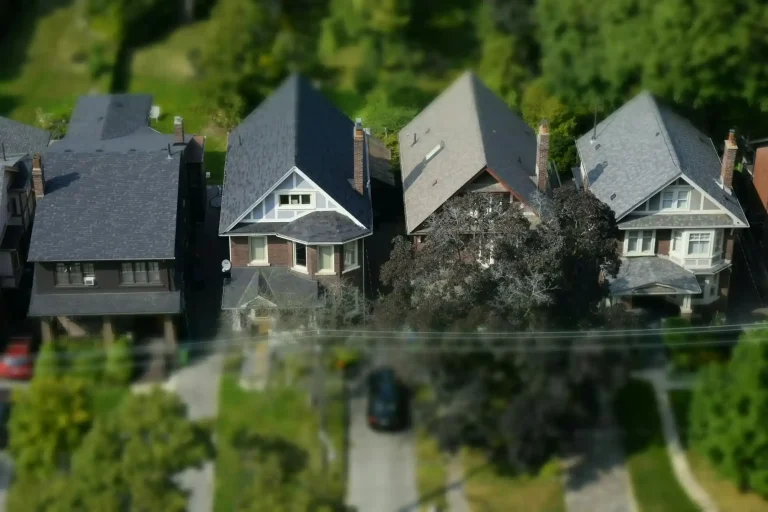Understanding Homeowners Insurance Non-Renewal Policies

Getting a notice about homeowners insurance non-renewal policies can be stressful. Many homeowners don’t know why their policy wasn’t renewed or what steps to take next. This blog will help you understand why non-renewals happen and how to protect your home moving forward.
From risk factors to your legal rights, we’ll explain everything in simple terms. Knowing how homeowners’ insurance non-renewal policies work can save you time, money, and worry in the future.
What Are Homeowners Insurance Non-Renewal Policies?
Homeowners insurance non-renewal policies refer to the circumstances under which your insurance company may decide not to extend your current coverage. This decision can depend on various factors. Often, it can be due to claims you’ve made or broader market conditions.
The non-renewal of your policy means you’ll need to find new insurance, which can be daunting. Knowing this ahead of time prepares you for possible changes. Recognizing these policies can help you take proactive steps.
Keeping the lines of communication open with your insurer is also important. This can provide insights into your current policy status. Being aware can help you avoid surprises when renewal time arrives.
Common Reasons for Non-Renewal
There are several reasons for the non-renewal of a homeowner’s insurance policy. One primary reason can be the number of claims made within a certain period. If you’ve filed multiple claims, your insurer may view you as a high-risk customer.
Another common reason is changes in local risks. For example, if your area has increased flood risks, insurers may adjust their coverage policies. This can lead to a decision not to renew your insurance.
Lastly, issues with the property itself can lead to non-renewal. If your property falls into disrepair, it may pose risks that the insurer does not want to cover. Regular maintenance can help avoid this scenario.
The Impact of Home Insurance Cancellation
A home insurance cancellation affects your financial security. If your policy is canceled, you might be left unprotected in case of damage or loss. This can lead to potential out-of-pocket expenses.
A cancellation can also affect your credit score. When you’re denied home insurance renewal, it may signal to other insurers that you’re a risky client. This can make it tougher to find affordable coverage in the future.
Additionally, some mortgage companies require homeowners’ insurance. If your policy ends, you may face additional pressure from lenders. This situation increases the urgency of finding new insurance.
Understanding Insurance Policy Termination
Insurance policy termination can happen for several reasons. It’s crucial to know the difference between non-renewal and termination. Understanding each can aid in navigating your insurance situation.
Termination generally means your insurance company has ended your policy completely. This can happen for reasons such as fraud or failure to pay insurance premiums. Understanding these terms can help you avoid unfortunate surprises.
A clear understanding of termination also helps in preventing policy issues. Knowing what leads to policy problems can potentially save you from future challenges. This knowledge empowers you to keep your insurance intact.
What to Do If Insurance Is Not Renewed
If your insurance isn’t renewed, take action quickly. Start by reviewing the reasons provided by your insurer. This information can guide your steps moving forward.
Next, explore your options. It’s essential to shop around for new insurance quotes. Use online tools that offer comparisons to find the best rates and coverage.
Finally, prepare to provide documentation for your new insurance application. This may include details about your property and claims history. Being proactive will help you secure coverage faster.
How to Appeal a Non-Renewal Decision
In some cases, you can indeed appeal a non-renewal decision. Begin by contacting your insurance company to discuss your case. A polite approach can sometimes yield favorable results.
If you have a good payment history, emphasize this during your appeal. Highlight why you value your insurance provider and what your history has been. This might persuade them to reconsider their decision.
Lastly, familiarize yourself with your state’s insurance regulations. Some states have rules protecting homeowners from unjust non-renewal. Knowing these guidelines can be a strong point during your appeal.
Securing Homeowners Insurance After Non-Renewal
How to get homeowners insurance after non-renewal can feel overwhelming, but it is possible. Start by assessing your insurance needs carefully. Knowing what you require can direct your search.
Next, consider reaching out to an independent agent. They can provide valuable insights and help find options tailored to your situation. An expert can also simplify the process and save you time.
Finally, increase your chances of success by improving your property’s condition. Make necessary repairs and updates before applying. A well-maintained home is far more appealing to insurance companies.
Long-term Strategies for Insurance Renewal
Long-term strategies can help maintain your insurance and ensure smooth renewal. First, regularly review your coverage and any changes needed. This proactive step keeps you informed and ready.
Next, avoid filing unnecessary claims. Minor damages can often be repaired without claiming insurance. This approach preserves your claim history and keeps you in good standing with your insurer.
Also, maintain open communication with your insurance agent. A good relationship can keep you informed about potential changes. This transparency can help you stay on top of your insurance needs.
Choosing the Right Insurance Provider
Choosing the right insurance provider is vital for homeowners. Start by researching insurers with strong reputations. Look for reviews and ratings to gauge customer satisfaction.
Additionally, ask friends or family for referrals. Personal experiences can provide insights that online reviews may not show. Referrals often lead to trustworthy companies you can rely on.
Finally, compare multiple quotes before choosing an insurer. Each company offers different coverage and costs. Weighing these options can help you find the best fit for your needs.
Protecting Your Home After Homeowners Insurance Non-Renewal Policies
Homeowners insurance non-renewal policies can be confusing and stressful. But knowing your rights and options can help. Always read notices and act fast when you get one.
Keep your home in good shape to avoid future issues. Limit small claims when possible. Talk to your insurer or agent for help. Shop around for new coverage if needed.
Staying prepared can protect your home. Understanding homeowners insurance non-renewal policies is key to keeping your property safe and insured.
Did you find this article helpful? Visit more of our blogs.





